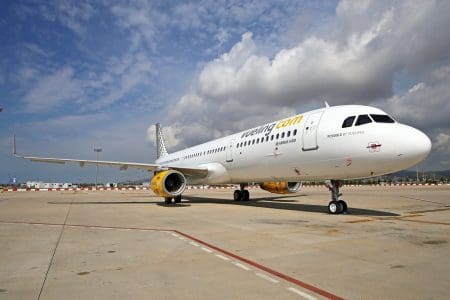It hasn’t been the best of times for Boeing what with the $2.5bn fraud charges related to the 737 Max crashes, but the plane manufacturer is looking forward to a more positive and cleaner future with the announcement it plans to produce commercial airplanes capable of flying on 100% biofuel by 2030.
“It’s a tremendous challenge, it’s the challenge of our lifetime,” Sean Newsum, the company’s director of sustainability strategy, told Reuters. “Aviation is committed to doing its part to reduce its carbon footprint.”
Reducing Carbon Emissions
According to the Air Transport Action Group, commercial flights currently account for roughly 2% of global carbon emissions and 12% of transport emissions.
The aviation industry emits 1.1 billion tons of CO2 globally, per year. However, it has committed to reduce its net CO2 emissions by 50% by 2050, relative to 2005 levels.
Boeing’s announcement comes after its main rival Airbus declared last year that it was developing prototypes for hydrogen zero emission planes it hopes will come into operation by 2035.
The US airplane manufacturer plans to cut its carbon emissions in half by 2050, in line with the industry target, through a combination of jet systems advances, improving fuel blending, and safety certification.
Read Travel Begins at 40’s Climate Friendly Travel Pledge in Travel and Tourism: a Clean and Green Future.
Developing Biofuel for Planes

Currently biofuel, or sustainable aviation fuel (SAF), is mixed with conventional jet fuel to a 50/50 blend, the maximum allowed under current fuel specifications.
Boeing says that it needs to work with groups, such as ASTM International, that set fuel specifications to raise the blending limit to allow expanded use of biofuels, and to convince aviation regulators globally to certify the planes as safe.
Biofuel is produced from waste products such as municipal landfill waste, vegetable oil and agriculture-residue. Scaling up the production of biofuels is costly, as it costs three times more than conventional jet fuel.
In 2018, Boeing staged the world’s first commercial flight using 100% biofuel on a FedEx Corp 777 freighter.
Economic Benefits of Biofuel
The International Air Transport Association (IATA) recently called upon governments to promote biofuels or SAFs through green, stimulus investments. The goal is to make SAFs account for up to 2% of global aviation fuel use (6-7 billion litres) by 2025. Currently, it sits at 0.1% (100 million litres).
Business Traveller reports that SAFs could boost the UK economy by 2.9 billion annually by 2038 and could create 20,200 secure and sustainable jobs.



